Your shopping cart is empty!
In this article, we’re going to provide a brief overview of some of the various guitar nut materials and types that are currently available to you through the Halo Custom Shop, and offer a bit of insight on what they do and how they can enhance your sound and improve tone immediately.
So let’s start with the stuff itself shall we!
In the world of guitar building, there are essentially two types of nut materials to choose from:
(1) Organic Materials
(2) Inorganic Materials
Organic Materials:
Bone: Regarded as a discerning builder’s prime choice due to its hardness, propensity for density and extraordinary tone transfer, bone is durable, lightweight and typically made from a cow’s leg bone (in case you were wondering...), which is the exact opposite of 100% Vegan :(
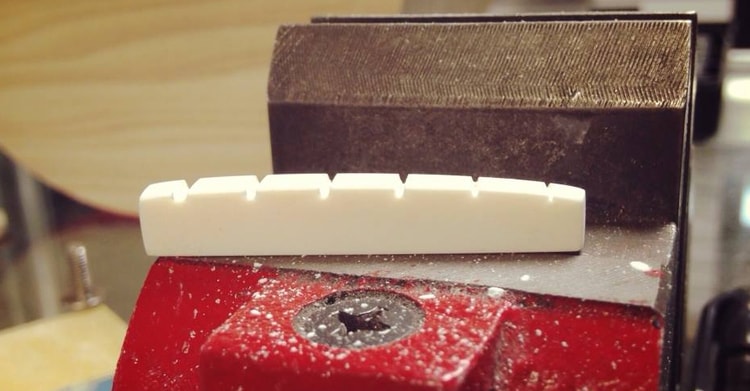
Ebony: Whilst generally not suitable for electric guitars due to its penchant for cracking under pressure, Ebony looks exotically wonderful and can be found on a lot of vintage and softer stringed instruments like violins and mandolins. Totally vegan btw! :)
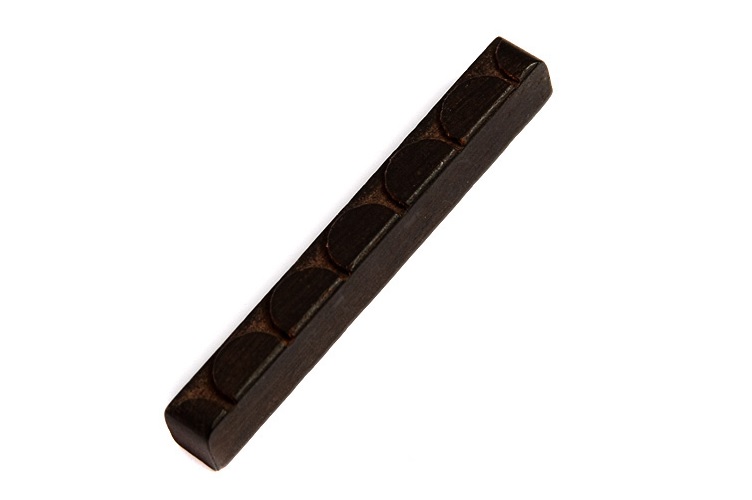
Fossil Ivory: Super dense and very similar to bone in sustain and performance, this beautiful nut material offers brilliant harmonic textures and sustain. However, fossil ivory is a banned material due to the ethical issues associated with obtaining it and so it is not readily available. It is 0% vegan and maybe even negative -9000 vegan if that’s a thing.
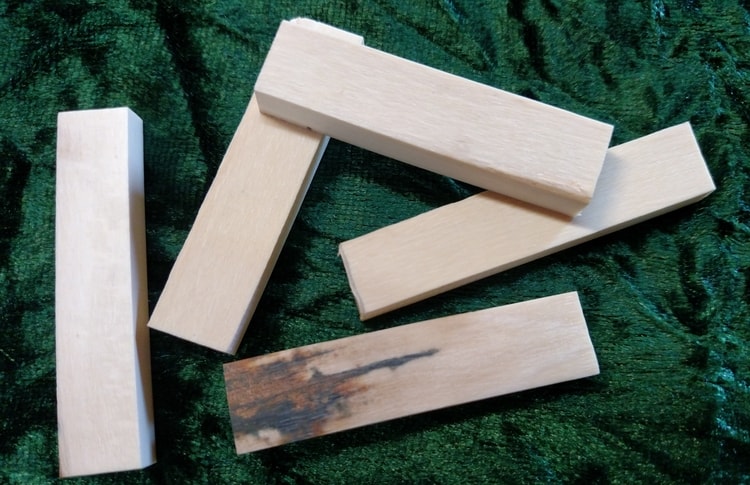
(Image: Greg Boyd)
Inorganic Materials:
Industrial Plastics: These are not to be confused with the cheap plastic nuts found on entry to mid level guitars. Instead, these industrial plastic nuts are proprietary materials that are engineered to give uniform density, increased harmonic content, crisp notes and some even have self-lubricating properties (so the strings never hang-up in the nut slot). You might recognize the brand names of these industrial plastic nuts: Graph Tech TUSQ, TUSQ XL, NUBONE, and DuPont Corian, just to name a few. These nuts have become a modern industry standard and are a first-choice for the skilled luthiers here at Halo Custom Guitars as they simulate bone and ivory almost perfectly.
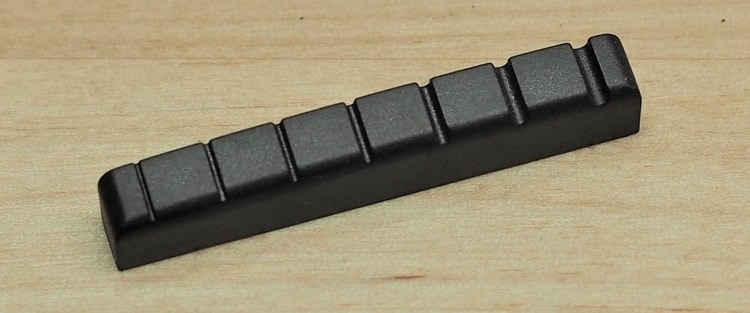
Metal: Durable and bright sounding overall, metal nuts have great tone transfer properties and are used as the core material for locking and roller Nuts on high-performance guitars. Brass is still a popular choice amongst some builders as it’s denser than bone, plastic, or other materials and offers a lovely sustain decay. However, it is softer than bone and wears out quicker due to the strings making repeated contact with the nut over time.
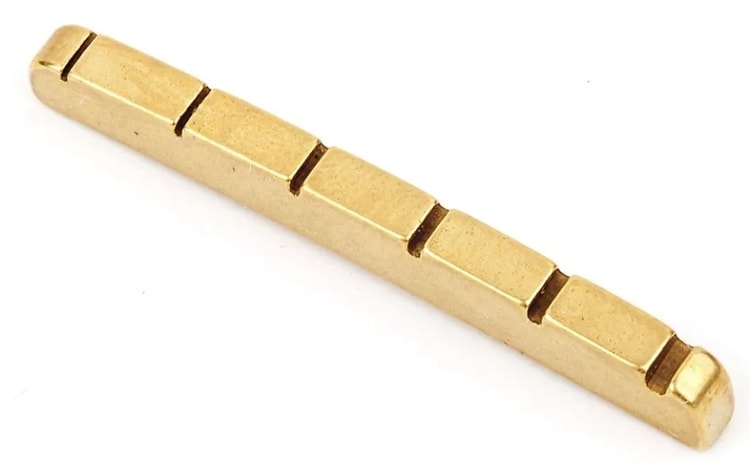
Plastic: This economical choice can often be found on entry level and toy guitars. Whilst decently reliable and inexpensive to replace, it’s not the most dynamic sounding material but will get the job done for very little money. We take immense pride in hand-curating each component for the best sounding guitar you can have built. As such, we do not offer plastic nuts in the custom shop or install them on any of our guitars.
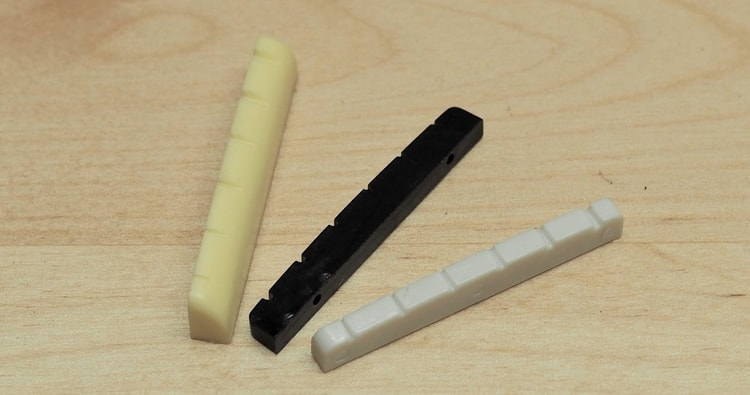
Now that we’ve covered the most commonly used materials, let’s take a glance at the some additional types of nuts that are available in the Halo Custom Shop.
The Zero Fret + String Guide: A zero fret is just a fret that gets installed where a standard nut would normally be installed. A string guide (which looks exactly like a standard nut because it is a standard nut) is then installed behind the zero fret and acts solely as a string spacer. Zero frets offer the legitimate auditory benefit of making the open strings sound the same as the fretted notes! Lots of vintage and older guitars featured the zero fret, but it’s definitely on the comeback these days and many luthiers are rediscovering the tonal benefits of the zero fret all over again.
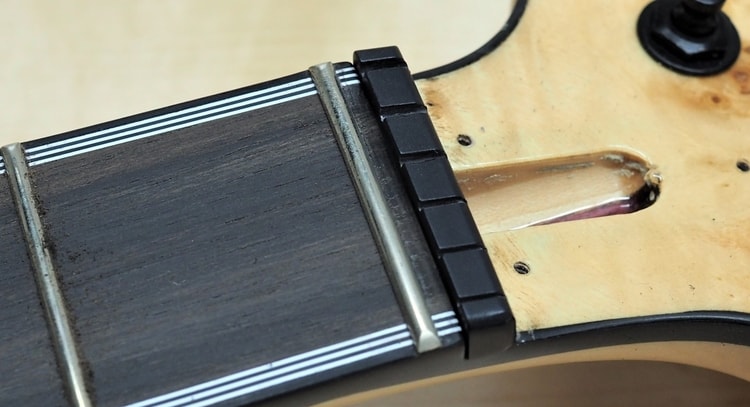
The Locking Nut: Let’s face it, dive bombing with a whammy bar can take a serious toll on your tuning and the locking nut has always been the companion to the floating tremolo system for added stability in this regard. The locking nut design typically features three or more individual clamping nuts tightened by an Allen wrench to apply force as to prohibit the string from moving or slipping at the nut. This dramatically increases tuning reliability and allows the player to freely apply wide vibrato motions without the fear of immediately going out of tune.
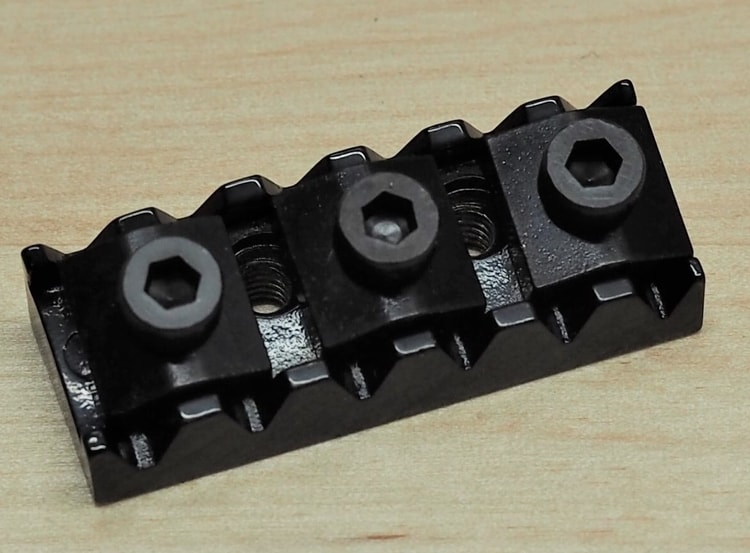
The Adjustable Nut: Typically constructed with brass and is height adjustable by lowering or raising embedded screws, this one’s good for dialing in the action (string height) at the nut without having to recut and/or re-slot a whole new one each time.
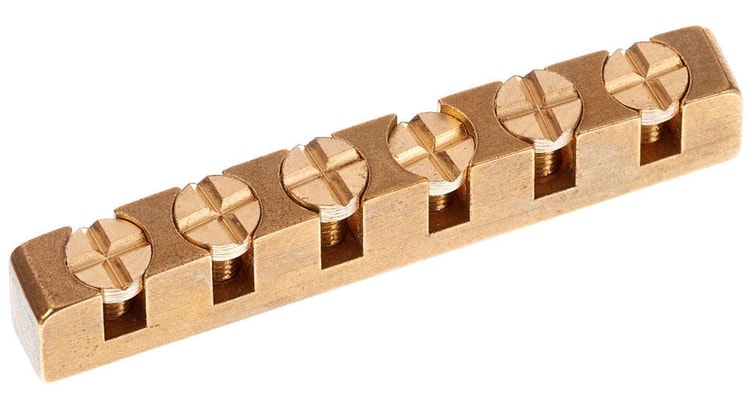
The Roller Nut: Designed in the 80’s and popularized by heavy-duty players like Jeff Beck, the roller nut design is a clever little device that reduces string friction by allowing the string to move back and forth on ball bearings. These nuts help maintain tuning over prolonged sessions and players who use them tend to swear by their perceived sense of increased sustain and tuning stability.
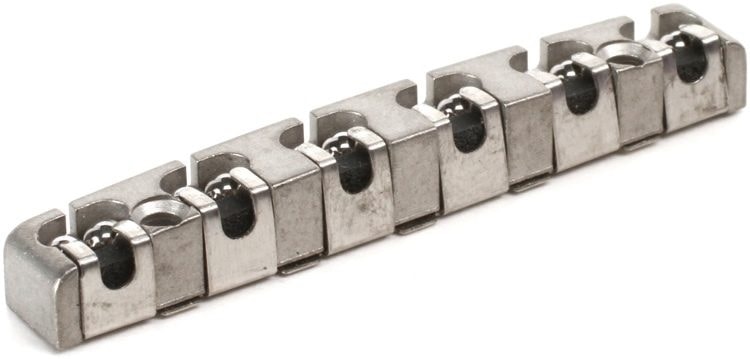
That’s the nuts and bolts of, well, guitar nuts! If you have any questions about this or anything related to improving your tone, playability, or upgrades in general, please drop us a line at sales@haloguitars.com and we’ll be happy to offer a whole galaxy of options designed to make you sound and play better today!
Comments: 5
Leave a Reply
Your email address cannot be published. Required fields are marked*
Blog Search
Categories


Hi-what lengths of nuts can I order? I have large hands and find the most comfort and playability is a guitar with a Nut Width of 1.9"
Hi Dale - for our custom builds, you can specify any nut width you wish, so 1.9" would be no problem at all. For our production models, we've offered a few different nut widths over the years.
Currently, we only have these two "wide neck guitar" models in stock that might work for you:
1. Octavia Wide Neck, Natural
2. Octavia Wide Neck, Red
Both have a 50mm nut width, which is 1.9685"
In the past we've offered other wide neck guitar models with different nut widths, like 48mm and 52mm.
Hope this helps, thanks!
- Jeff Lee, Halo Custom Guitars
What is the standard nut width of a 4 string 35” scale length neck? Thanks
Hi Jordan - standard nut width for our 4-string basses is 1-11/16" (43mm). Thanks!